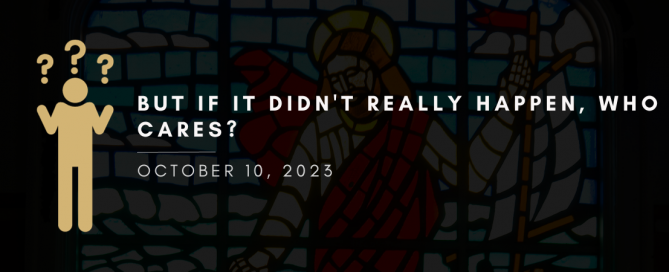New Testament Gospels
Aren’t You Inconsistent in Your View of the Historicity of the Gospels?
Do contradictions in a story show that it didn't happen? When I first responded (a few days ago) to Mark Goodacre’s five points calling into question the traditional story of the discovery of the Nag Hammadi Library, I was intrigued to receive a number of comments suggesting I sure seemed to be inconsistent in how I dealt with historical accounts. To wit: Why would I say contradictions in the Nag Hammadi discovery story (that Mark pointed out) DON'T show that the basic account is false -- that is, didn't happen -- but I DO use contradictions to call the Gospel accounts of Jesus into question. Is this an agenda-driven inconsistency? All right -- fair question. First let me remind you that in my post a few days ago (about the Nag Hammadi discovery) I pointed out that just because a story changes over time does not mean that the gist of the story is false. If some tellings indicate that the jar was two feet tall and others that it was six, or [...]


